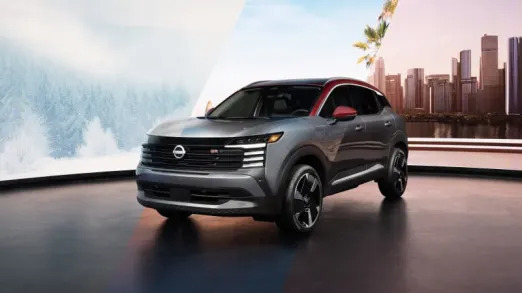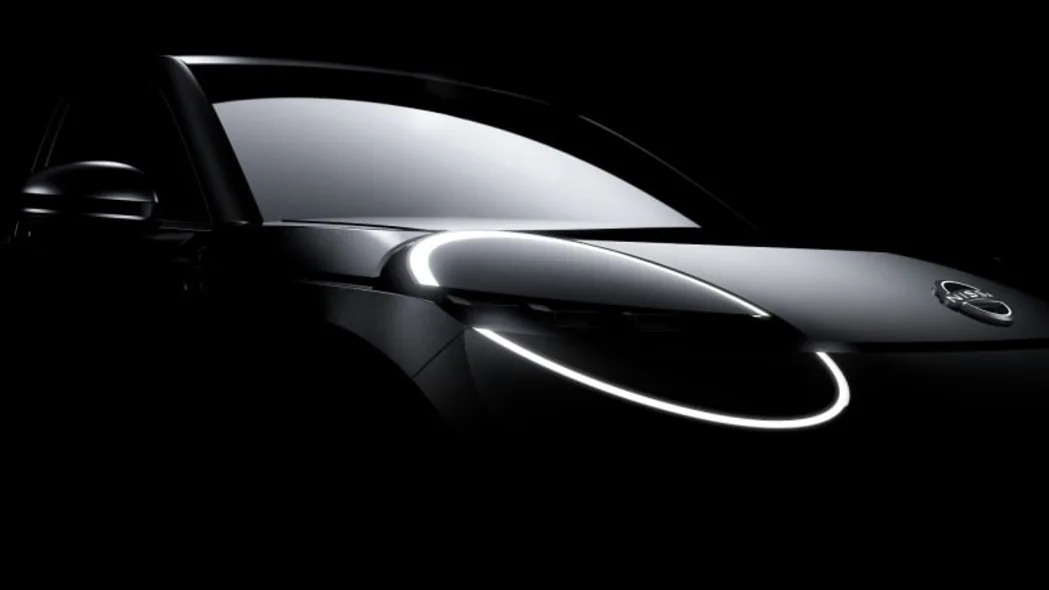Nissan designer Alfonso Albaisa: 'There is no longer a face of Nissan'

At the New York International Auto Show, we had an opportunity to chat with Nissan’s Senior Vice President for Global Design, Alfonso Albaisa, about a variety of things related to car design. And naturally it focused on Nissan, and he shared a number of things that have us excited to see where Nissan is headed over the next several years. Particularly, it seems like Nissan may buck a couple of trends in car design of the last few decades.
One of the first topics we covered was that of corporate design language. Many, many automakers have leaned heavily on one basic design idea applied to many sizes and shapes of vehicle through the lineup. Nissan was among them, most famously (or infamously, depending on your perspective) with its V-Motion grille. Certainly there can be benefits, such as creating strong brand recognition. And if it’s a good look, the whole line can benefit. But it can also keep some models from standing out, and could even be awkward on some cars. For those reasons and more, Albaisa said Nissan will be moving away from a strict corporate design template.
“There is no longer a face of Nissan,” he said.

He talked about how having that strict styling edict doesn’t meet the needs of different buyers, giving the example of how a Frontier buyer isn’t necessarily looking for a Z, or vice versa. As such, there’s no need to make them look significantly like each other. The Kicks is an early example of letting models be more differentiated, what with its unique grille, as well as lighting front and rear. In case you’re curious, Albaisa noted that the new Kicks takes a lot of inspiration from American football gear and athletic shoes. The low, rounded grille with fat bars is based on a helmet, and the wide haunches come from shoulder pads. There’s geometric detailing in the lower cladding that’s based on athletic shoes.
Albaisa also noted that the corporate design language model has the issue of instantly dating a lineup. When the new language is adopted, it only comes out on a model-by-model basis. So you have one super new car, and the rest of the lineup is suddenly old.
Albaisa further talked about how he feels that the peak of Nissan design was back in the early 1990s when he first started at the company. He said he “fell in love with the diversity” of Nissan’s designs. In the decades that have followed, he said Nissan “hasn’t leveraged that enough.”
But that’s not all that he loved about that time for Nissan. We talked a bit about the Pike Factory cars, the retro-inspired small car models including the Be-1, Pao, Figaro and S-Cargo. He recalled seeing the Figaro, which is extremely retro-looking with lots of chrome, circular lights and bakelite-style switchgear, and being wowed by it. He referred to these sorts of cars, as well as other unique Nissans like the Cube, as being “purely charming cars”; vehicles that don’t have to look mean, aggressive and sleek.

And this is the other part that he, and definitely we, are excited about: Albaisa wants more of these “charming” cars. He pointed particularly to a vehicle that can be spotted in a teaser video (which also seems to tease a new Xterra) above with big round headlights. We’re pretty sure it’s a new generation of Nissan Micra, which the brand teased a while ago. Albaisa hinted that it will be using the same EV platform as the Renault 5. He wouldn’t say whether it will be offered in America, and since the Micra hasn’t been sold here, we’re not holding our breaths, which is a little sad, because it does look adorable. Canada might at least get it, since they got a more recent generation.
Regardless, all this has us excited for future Nissans. It sounds like we’ll be seeing much more unique designs that should help the brand’s vehicles stand out far more than they currently do.


